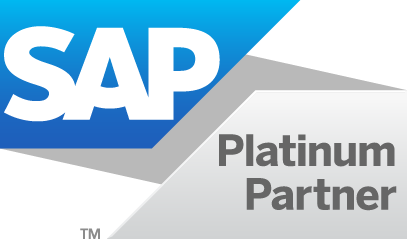What is SAP CRM? During your search for CRM, you may come across SAP or maybe you were specifically looking for SAP CRM. In this article, we will explain the meaning and benefits of CRM and what SAP CRM in specific can do for you and your company. On top of that, we will take a walk through history and dive into the future of SAP CRM so that at the end of this article, you are fully up to speed on SAP CRM.
What is CRM?
“CRM stands for customer relationship management. With a CRM system, you can automate and integrate your customer-facing activities: sales, marketing, customer service, and e-commerce. Best-in-class CRM software also offers tools for customer analytics, personalization, social media, collaboration, and more”. SAP (2020)
To put it simply, a CRM system helps provide a better relationship between a company and its customers, enabling streamlined processes and increased profitability. A CRM system allows you to focus on your organization’s relationships with individual people, which includes customers, colleagues, or suppliers, throughout your lifecycle with them.
This helps in finding new potential leads/customers, winning their business, and providing first-hand support on top of additional services throughout the relationship.
What does CRM do?
CRM systems are designed as supporting strategies that are centered around customers. By putting those customers in the center of all front office operations such as sales, marketing, and service, businesses are able to create and build long-lasting relationships, convert prospects into leads, gain loyalty, increase retention, and increase revenue. Let’s have a look at how CRM software works. CRM systems have three important aspects:
1. A centralized customer data hub
With CRM, you are able to consolidate customer data that includes; contact details, cross-channel interactions, service history, and social media activities. By doing so, you can gain a 360-degree view of every customer, which is available in real-time.
2. Customer analytics
With CRM, you are able to gain deeper insights into customer expectations and their needs by analyzing customer interactions and history. You will then be able to use these insights for targeting offers, resolving service issues, boosting satisfaction, creating personalized experiences, and informing marketing strategies.
3. CRM process and marketing automation
With CRM, companies are able to improve efficiency and provide better customer experiences by automating business processes such as lead and pipeline management, campaign development, and service tracking. Moreover, the CRM system will inform your sales reps at the right time to follow up with a prospect. Thus, it ensures that your customers are only receiving relevant offers. Besides that, any occurring service issue is resolved without the need for customers to keep repeating their concerns.
Why is CRM important?
Nowadays, the expectations of customers are higher than ever. It will, however, be a hard task to cope with those expectations if you do not understand the personal needs, wants, and feelings of the customer. CRM is able to help you with that.
Today’s CRM systems centralize, store, and track enormous amounts of data of customers and prospects – From contact history to all the social media activity – CRM makes it available in real-time. CRM allows you to analyze this data and enables you to use it for delivering highly personalized customer experiences. Therefore, you are able to meet and exceed customer experiences and create customers for life.
Who should use CRM?
CRM will be beneficial for every front office department which includes sales, marketing, customer service, business development, and many more. By centralizing data instead of using different data silo’s, CRM allows you to create a complete profile of your customer and their accounts. This provides you with the ability to deliver more personalized engagements and gives you helpful insights into your company.
History of SAP CRM
The history of SAP CRM goes back to around the year 1990 in which SAP started working on CRM related capabilities. In the year 2000, SAP introduced its first standalone CRM software. Lots have changed since this first introduction. In this article, however, we will focus on the last decade of SAP CRM since this is most interesting.
1. SAP Hybris
In 2013, SAP acquired the company Hybris that was specialized in enterprise Omni channels and Product Content Management (PCM) software and named it SAP Hybris. This new SAP Hybris was an Omnichannel e-commerce solutions platform that included a family of products committed to Customer Relationship Management (CRM). The SAP Hybris portfolio included five distinct products namely, Hybris:
- Commerce
- Billing
- Cloud for Customer (C4C) for Sales
- Cloud for Customer (C4C) for Service
- Marketing

2. SAP C4C
The SAP Cloud for Customer (SAP C4C) was SAP’s on-demand cloud-based Customer Relationship Management (CRM ) intended for sales and service only. In April 2016, SAP renamed its Cloud for Customer solution to SAP Hybris Cloud for Customer. It included; the SAP Hybris Cloud for Sales and the SAP Hybris Cloud for Service.
SAP C4C focused on improving the ease of use and increasing productivity so that sales professionals could spend more time selling and less time on a sales force application. Furthermore, the SAP C4C software was able to help users predict sales success bases on competing products, historical data, and other factors with the use of embedded analytics. Also, the C4C sales analytics provided standard sets of reports and dashboards for the day to day use of a sales representative.
Since the rebranding of SAP Hybris and SAP C4C, and the name change to SAP C/4HANA, SAP C4C no longer exists. Moreover, the SAP Hybris Cloud for Sales and the SAP Hybris Cloud for Service (cloud solutions in SAP C4C) were also rebranded as SAP Sales Cloud and SAP Service Cloud, respectively.
Future of SAP CRM

Having standalone marketing, sales, and e-commerce solutions used to be good enough for most purposes. However, times have changed, and a simple service request from a customer is now likely to affect multiple departments.
Let us explain by giving some examples.
A new client registers on your website and searches for products. Your customer service team will not know about this. Simply because the system used for registering the customer is not connected to the system of your customer service team.
Another example, when your customers agree to their data being processed and at the same time they expect that this data is used for their benefit. Therefore, it is key that as soon as your client has registered, your marketing staff and your customer services team know they have a potential new client. Hence, they can deliver personalized invitations and other offerings based on the collected data.
Nowadays, customers expect to receive relevant content at the right time and through their desired channels.
SAP Customer Experience (CX)
SAP CX is the “Next-generation SAP CRM” because this solution modernized the legacy of SAP CRM solutions. SAP CX achieved it by encouraging a positive customer experience at every stage of the customer journey. Moreover, it provides a consistent experience across all channels, and also real-time data.

The SAP Customer Experience suite, CX, includes 5 clouds that will cover and optimize all of your front-office operations.
- Marketing Cloud
- Sales Cloud
- Commerce Cloud
- Service Cloud
- Customer Data Cloud
Every cloud has multiple tools and advanced integrated technologies that will help you with your day-to-day operations. With CX, companies will be able to automate time-consuming tasks, increase their workforce productivity, and better understand their customers.
Also Read: What is SAP Customer Experience (CX)














